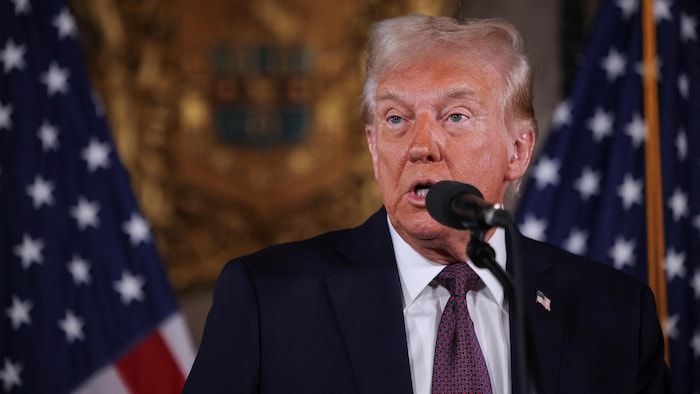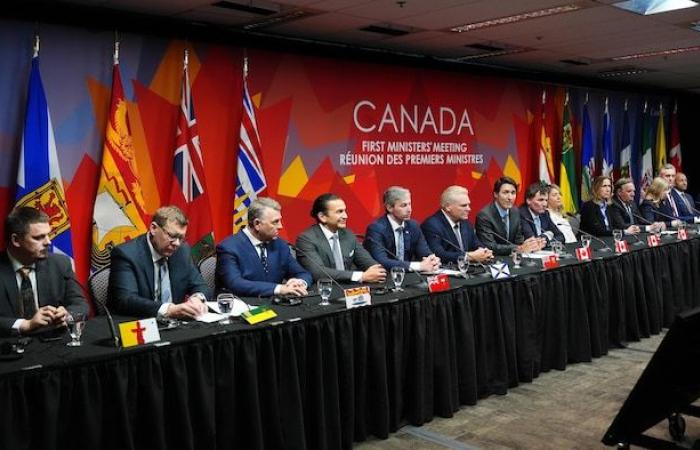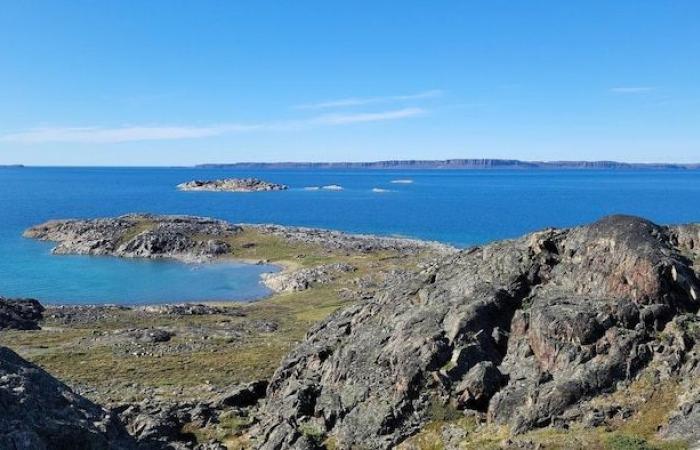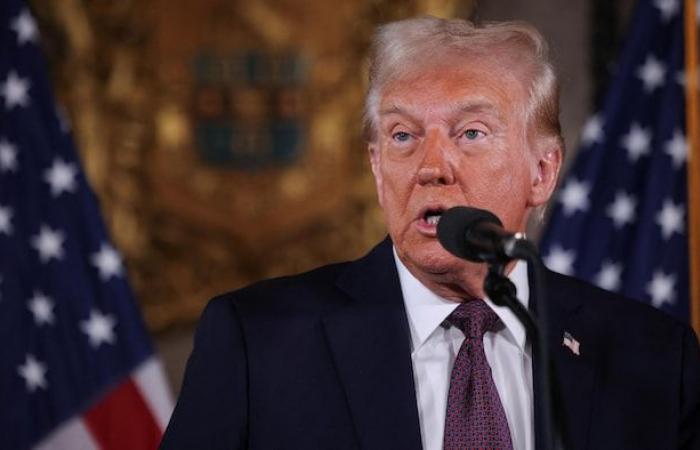Greater funding in northern communities would be beneficial for the entire country, argue the territorial premiers on the sidelines of the Council of the Federation meeting.
The meeting, held in Ottawa with the federal government, mainly served to determine the next steps regarding economic relations with the United States, given the 25% customs tariffs that Donald Trump, the president-elect, is threatening to put in place.
This is an important moment for the North and the Arctic. The topics we are going to discuss today are [ceux] which we have been discussing for years here
underlines the Premier of Yukon, Ranj Pillai, on the sidelines of Wednesday’s meetings.
He gives as an example the question of the defense and vulnerability of the Arctic, but also the exploitation and export of critical minerals.
Open in full screen mode
The prime ministers of Canada met Wednesday in Ottawa. David Eby from British Columbia and Danielle Smith from Alberta participated virtually.
Photo: The Canadian Press / Sean Kilpatrick
On this point, the Premier of Nunavut, PJ Akeeagok, made a point of recalling his territory’s contribution to the Canadian and global economy.
Nunavut currently supplies incredible critical minerals. The Nunavut Iron Mine supplies the world with the purest iron ore and is our largest contributor to GDP
he explains.
According to him, the economic threats from the president-elect of the United States are as much a challenge for the country as an opportunity to be seized to invest, particularly in northern communities.
It is healthy communities that determine our sovereignty in the Arctic.
Open in full screen mode
A deep-water port and road infrastructure project is proposed for Grays Bay, seen in this photo, in Nunavut. (Archive photo)
Photo: Provided by West Kitikmeot Resources
PJ Akeeagok also reiterates the importance of projects such as the road and port of Grays Bay which aims to unlock access to critical minerals and the Northwest Passage, an increasingly important maritime corridor.
It can be used by the Navy, the Canadian Coast Guard, it is directly on the Northwest Passage and it helps unlock the critical mineral potential of our territory
he emphasizes.
His counterpart from the Northwest Territories, RJ Simpson, agrees. According to him, the territories have a lot to offer economically to the country, but they lack essential infrastructure.
We don’t have the roads to access Canada’s mineral-rich areas to take advantage of our natural advantages
he said.

Open in full screen mode
United States President-elect Donald Trump will be sworn in on January 20, 2025. (File photo)
Photo: Reuters / Carlos Barria
He adds that, although Canada will not cease to maintain an economic relationship with its southern neighbor, it is important for the country to consider other options to limit its dependence on American products.
We need infrastructure in the North to be able to contribute to a strong and prosperous Canada that is not dependent on the United States.
For his part, the Premier of Yukon, Ranj Pillai, especially wanted Wednesday’s meeting to allow all the premiers to agree on a course of action in the event that the United States carries out its threat.
We now have a greater understanding of how we will work together and how the tools that each brings to the table will impact other provinces and territories, but also how these tools can be more effective.
he explains, adding to be very happy with this [qu’il a] heard today
.








